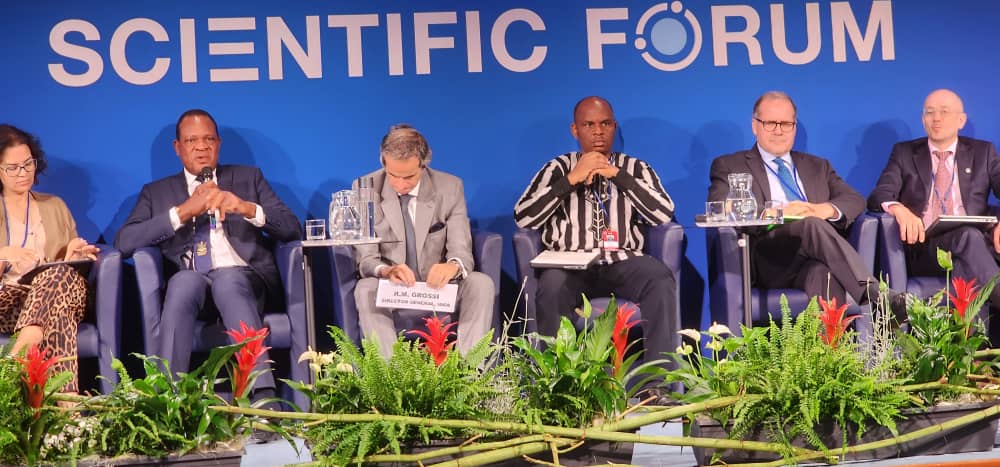|
Getting your Trinity Audio player ready...
|
Zimbabwe’s Minister of Lands, Agriculture, Fisheries, Water and Rural Development, Dr. Anxious Masuka has said lessons from the International Atomic Energy Agency (IAEA) Scientific Forum 2024, themed ‘Atoms4Food: Better Agriculture for a Better Life’, should be harnessed to promote food and nutrition security in the country.
He revealed that in a panel discussion of a session titled “Fostering partnership building and mobilizing resources for increased and more sustainable impact.”
“Let me be more context-specific and speak about Zimbabwe and look at what we call the agricultural food system and the world transformation strategy, which we put together and said that we want food security, food sovereignty, and we’ve been through all agriculture systems, the small, the 70% of the population, they get their number from agriculture.
“So it is our responsibility to undo poverty towards prosperity in the way of a large-scale commercial sector. But in the context of that, we have climate change, increasing population, and urbanization, and we’re seeing the most conservative estimates now indicate a 30% reduction in rain-fed maize production by 2050. And by that time, we have doubled the population, so we need to feed more people from reduced land. So we’re not looking at a horizontal increase as a result of more area being brought into production. We’re looking at a vertical increase in production, which is yield. But that is based on the viability, profitability, and sustainability of farming,” Minister Masuka said.
He alluded to the need for sustainable, intensive conservation agriculture at the smallholder level. In the context of climate change, the minister said more has to be done, including using more drought-tolerant varieties, that are more tolerant to pests and diseases.
Starch in Zimbabwe and the rest of Southern Africa is based on maize and traditional grains and millets.
“We will need the Atoms4Food Forum to assist us to rapidly screen new varieties that are adapted to the drier environment, but also not make it the reason why most farmers in Zimbabwe do not produce millets on a commercial basis. It is because the yields are too low (1 to 2 tons per hectare).
“And if we can use these traditional varieties, it means we’ll also have solved the nutritional aspect. In many respects, maize, and millets are fortified with vitamin A in ways all these traditional grains are naturally bio-fortified. So we would be able to accomplish quite a lot if we can use mutation breeding to select varieties that are higher yielding, more drought, and pest-tolerant. There is also an increasing threat to maize production in Zimbabwe and the rest of southern Africa. It is now impossible, even at a smallholder level, to produce maize without chemicals. And even without the chemicals, the insects are becoming resistant. So now we have to protect them, season them, to proceed with dressings. If we can bring in atoms for food to bring in maybe the sterile insect technique and other interventions, we could try and reduce and eventually eliminate this pest and make maize production more profitable again at the smallholder level,” Minister Masuka said.
He said this is the focus on crops but there must also be a similar focus on livestock. With climate change, he said the forum should be able to look at Indigenous grains that are better adapted because 90 percent of the livestock in Zimbabwe is in smallholder farmers’ hands.
“We will not only look at businesses, and their economic status in the African context but also to become a business. It means that we need to look at better breeds that are better adapted to this drier environment. The last thing that I see on the horizon in terms of climate change and the challenge, threat, and perhaps innovation with atoms for food is that we have sets of insects that we have largely eliminated and are confined to one small area now. But with climate change, it means that all of Zimbabwe will now be ecologically possible for this insect to thrive again.
“So it means that we have the surveillance aspects, the vigilance aspects, and the atoms for food forum can bring in the tools that are required to ensure that we enhance our surveillance skills and ensure that the people can continue to produce and rise to raise their business in this area. So there’s so much potential that atoms for food can bring about.”






